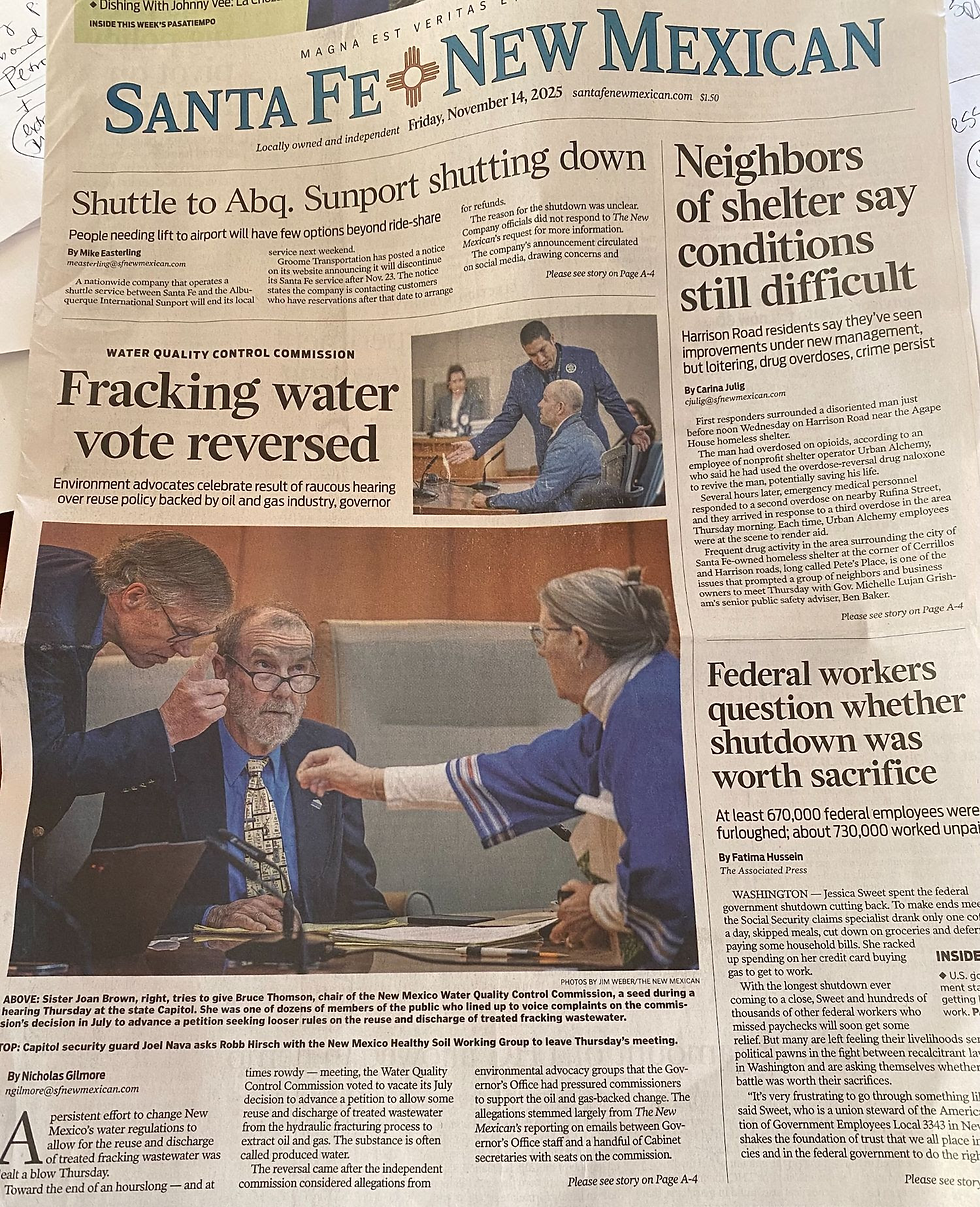The Public Showed up to Oppose Proposed Produced Water Regulations
- Aug 3, 2020
- 3 min read
Updated: Jan 15, 2021
Last week was a big week for us! We are still celebrating the replacement power victory and for the last two days of the week, like many of you, we were a part of the Oil Conservation Division's "Produced Water" rule-making hearing.
Thank you to all of you who navigated the inaccessible, cumbersome, and undemocratic process and managed to be available at the random moment over those two days that your name was called. Despite the barriers to participation -- the concerns and issues you raised rang out throughout the hearing and held the Oil Conservation Commission to account. Despite the obstacles -- the public showed up in force to oppose the rule-making process.

UNDERSTANDING THE ISSUES PRESENTED
The Oil Conservation Commission and New Mexico Oil & Gas Association argued that the scope of rulemaking should be limited to the specific language of the rule, which stipulates vaguely that disposition of fracking waste must "protect public health, the environment and fresh water resources" without defining any standards to be followed. New Energy Economy and allies argued instead that science and data must inform the rules, and that all implications for health, the environment and affected communities must be clearly addressed.
As Norman Gaume, former director of the Interstate Stream Commission, so eloquently testified during the hearing, hydraulic fracturing and the disposition of fracking waste already constitutes an environmental disaster in New Mexico. In the first 6 months of 2020 the O&G industry reported 171 major spills, which is almost one major spill a day and amounts to: 9482 gallons spilled, 56% was recovered and 43% was lost. Nearly half of this toxic waste was not contained and has contaminated NM land and water. Dr. Valerie Gremillion, Ph.D also raised critical questions about the economic impacts of this rulemaking in her public comment that remained unanswered by the commission.
The Oil Conservation Division is obligated to monitor, regulate, control, and enforce against oil and gas pollution. It is OCD's responsibility to ensure that the rules include specifics based on science and data, and that these rules address the full scope of dangers posed by hydraulic fracturing and the resulting fracking waste.
Mariel was able to provide the last words of the hearing, leaving the Oil Conservation Commission with these closing words:
If you love your children: the only responsible action is to delay or abort these rule amendments which are inconsistent with the obligation to protect public health, environment, & fresh water resources, which is your mandate.
Following closing comments there was a long, undefined recess and then the Commission reconvened to deliberate the proposed rule. At the end of the hearing the State Land Office representative on the commission, Jordan Kessler, abstained from deliberations because of her concern about insufficient input from stakeholders prior to rulemaking. Chairperson Adrienne Sandoval of the Oil Conservation Division and Mr. Thomas Engler, Designee of the Energy, Minerals and Natural Resources Department proceeded to move through the proposed rule line by line and modify language. While they did accept some proposed language changes by official parties -- they did so with no clear standards of review - no reference to current statutes, no legal council, and with zero reference to any of the expert testimony and public testimony that had just taken place over the two day hearing. The hearing & deliberations laid bare the inadequacies of current regulations and enforcement, the rule-making process and the proposed amendments. New Mexico deserves better!
Thank you everyone for participating! Let's keep up the Pressure!
Though the hearing appeared to mock principles of law and justice and is destined to come to a predetermined conclusion (adoption of arbitrary rules that do not protect our health, precious limited water and the environment) - our pressure has mattered. During the deliberations, the Commissioners clarified language to prohibit surface application of "produced water" even on oil and gas sites. There is no question that they felt like that kind of strong language was warranted because YOU, the public, is watching.
The final proposed rule draft will be issued in the coming weeks and the Commission is likely to vote to accept the grossly inadequate "produced water" rule amendments. We'll continue to keep you updated on this critical campaign to protect our bodies, communities, waters, and lands from toxic fracking waste.




Comments